NK Chats To…Suzie Hull
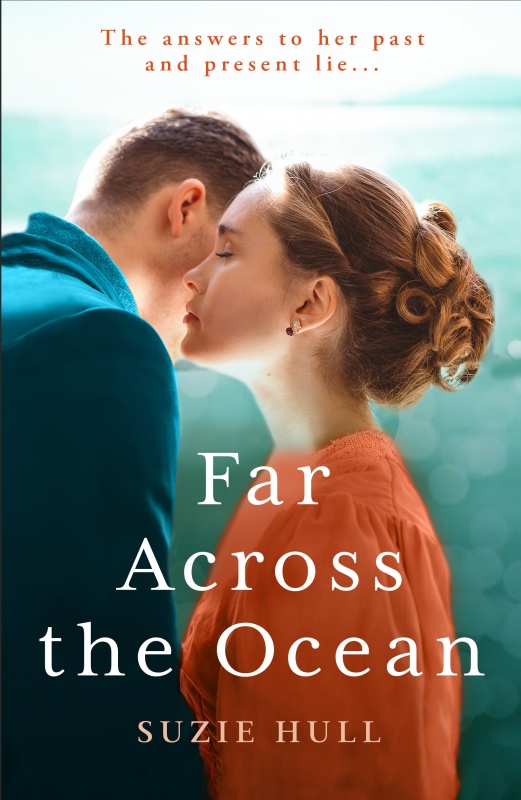 Hi Suzie. Thank you for inviting me onto your blog tour. Can you tell me about your novel, Far Across the Ocean and what inspired it?
Hi Suzie. Thank you for inviting me onto your blog tour. Can you tell me about your novel, Far Across the Ocean and what inspired it?
There are several things that kickstarted the idea for this novel. I was at a hotel on the coast and on the wall they had documented the story of a baby who had been washed up on the beach one day. She and her mother had been in a little boat, but when they were found, the mother had died and sadly nobody ever found out the identity of the baby. there have been countless times when this must have happened through history, and also recreated in fiction, but Far Across the Ocean was my take on how that ‘baby in the boat’ situation might have played out.
The next part was choosing the setting for my novel. Within my own family we have a long line of Quakers from the Yorkshire area. One branch of the family had a Worsted woollen mill in Bradford and looked after their workers very well, as did most Quaker employers at that time. It made sense to weave this part into my story, and Clara’s mother, aunt and uncle came from this fictional family of mill owners.
The last part of the setting came from another snippet I found when looking up details on the Quaker family, and I discovered some had travelled to Madagascar in the late 1800’s. This island setting, so far from home seemed to be the perfect setting to place my ‘baby in a boat’ situation.
What are the challenges you found when writing your novel?
I always wanted to ensure that I had done enough research to be respectful of the past history of the Malagasy people and represent their culture properly. I did have access to memoirs of European people who lived for a while on the island, but none of any Malagasy people from that time, which I would have liked, so that was my main challenge.
What’s your typical writing day like and in your opinion, what are the essential tools of the trade for a writer?
I’m afraid I don’t really have a typical writing day. I have a day job in a school, so generally work in the afternoon or evening, but I’m quite flexible. On the other hand, I can’t do without using Scrivener. All of my early drafts are written on it, and then when structural edits come back, I’m still using it. I’d be lost without it as I like to dip in and out of different chapters when things occur to me.
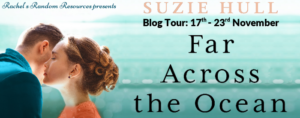 From idea to finished book, what’s your writing process like and how long does it typically take you?
From idea to finished book, what’s your writing process like and how long does it typically take you?
I tend to have an idea about something that interest me for years before it comes to fruition. I love reading non-fiction books and when something stands out, I bookmark it, or jot down story ideas in a notebook or on Scrivener for the day I’ll get to write it. It could be anything up to five years before I finally commit a story idea to paper. In that time the story idea is percolating in my brain and I’m coming up with characters and plot ideas or gathering more information that I’ll need. One day I’ll get to sit down and write that story.
Which authors do you admire?
There are so many authors I admire! Most of my favourites are female authors who write historical novels, either from my childhood are ones who write now. For example I loved Catherine Cookson, Daphne Du Maurier, Jane Austen and Mary Wesley. Recent authors are Dinah Jefferies, Kate Morton, Liz Fenwick, Jenny Ashcroft and Jojo Moyes.
Any advice for aspiring writers?
Just keep writing and don’t give up. Look for the little wins along the way. Join organisations or writing groups that will keep encouraging you and push you along too. But just don’t give up the dream. You can do this!
Do you have any particular writing quirks or rituals?
I must be very boring because I don’t have any rituals at all. The only quirks I can think of are hanging on to every post-it note I write myself, just in case I might need it again.
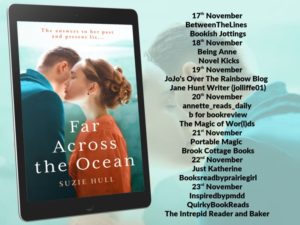 What’s the most surprising thing you’ve discovered since you’ve started writing?
What’s the most surprising thing you’ve discovered since you’ve started writing?
That writing a book takes a very very very long time! Yes seriously! And it takes up a lot of your time and doing structural edits is the thing can absolutely break a writer. Writing a novel is hard work and they should really pay us more.
What type of scene do you find it hardest to write?
I think it’s the quiet scenes. The big ones are easy because you absolutely know they have to be there, something big happens and I can really see it in my head. But those quiet scenes, the transitions scenes, or the ones where the characters has to react to the big event, they are hard because the purpose of them is still important, but getting it on paper is tricky. Usually less is more. And sometimes these are the scenes I left out during the first draft and I just left myself a note, ‘Jen goes to London, meets Rob. 500 words’ I regret leaving myself those notes!
When did you consider yourself a writer?
As soon as writing became important to me and I started making plans and dreams about my future of being a writer. It had nothing to do with being published in any way, but it was the desire to be one. That was key. It was my dream.
How do you research your novels? How do you know when you have enough?
I am very lucky that I like research. I love hunting out memoirs and diaries of people who lived through a past event, I think that is so important in order to ‘see’ this world that I want to recreate. When we look back at the past we might have ideas about how it was, but reading their words, recorded in real time is the best way to get an accurate feeling for the past. Once I have a memoir or diary I go hunting for facts that I need to know in order to start writing accurately. As I said before, an idea for a book might exist for several years before I finally commit it to paper, and it’s something that really interest me anyway, so I read around the subject as much as I can. I use Amazon a lot, as they will suggest other books to you. Customers also read ….
I probably have far too many books than I really need, but that’s ok because I enjoy it. I’ll know I have enough research done when I can work out the plot and start writing. After that, as I come across small things I need to know I’ll jot it down and make a list that I can do further research on. Unfortunately, if it’s something big that I need to know I do need to find an answer before I move on, especially if it concerns the plot.
For example, in Far Across The Ocean, I had to research exactly how and why the ship would sink off the island of Madagascar. To work this out I researched past shipwrecks across the Indian Ocean. Shipping lines. Ocean Currents and weather. I even contacted a couple I saw on Instagram who had sailed from Mauritius to Madagascar and explained the situation. They were happy to give me a couple of pointers and that led me on to watching several hours of another group who sailed the Indian Ocean. I also came across another ship, (YouTube is great), who were short of water on their sail boat and from a modern perspective and experience, I was able to weave those facts into the story too. Finally, I approached a friend whose husband had lots of experience sailing and gave him my suggested plan for the shipwreck to see if it felt right. Generally I can find most things out online, but speaking to a person is very useful if that’s possible. As my books are historical it’s hard to be 100% accurate, but I do my best to get it at least plausible. This ‘could’ have happened this way.
I think the biggest thing in research is to do due diligence when you can, and if you do change things a little, note it down and explain in the historical notes at the end of the book.
*****
About Far Across The Ocean:
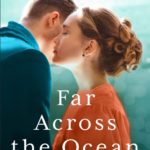 Don’t miss the next achingly romantic read from Suzie Hull, winner of the RNA Joan Hessayon award 2022
Don’t miss the next achingly romantic read from Suzie Hull, winner of the RNA Joan Hessayon award 2022
December 1913. Clara Thornton won’t allow being jilted at the altar to squash her spirit. Against the wishes of her aunt and uncle, Clara decides to travel to Madagascar to learn more about the tragic shipwreck that took the lives of her missionary family, and marked her forever.
Clara is escorted abroad by Xavier Mourain, a handsome young merchant who works with her uncle. The two of them start off on the wrong foot, but Clara can’t help but be drawn to the mysterious Frenchman who helps her unravel the mystery that has always haunted her. But as their love blossoms, war begins. And the world will never be the same again.
For Clara, all the answers seem to lie far across the ocean. But some of them might be closer than she thinks…
About Suzie Hull:
 Award winning author Suzie Hull lives in Northern Ireland with her family and numerous rescue cats.
Award winning author Suzie Hull lives in Northern Ireland with her family and numerous rescue cats.
As a child she dreamt of being a ballet dancer but instead trained as a Montessori Nursery teacher and has spent the last thirty years working with children in a variety of settings. Suzie has always had an enduring passion for reading and history.
Suzie HulI won the RNA Joan Hessayon Award 2022 with her debut novel, In This Foreign Land.
Say hello to Suzie on Twitter and Instagram.
Far Across the Ocean is due to be released by Orion Dash on 8th December. Click here to pre-order.

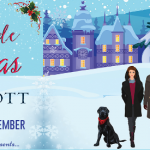
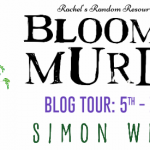
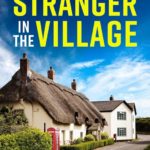
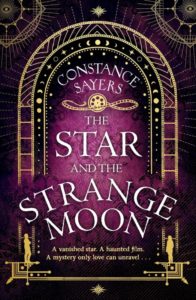
Leave a Reply